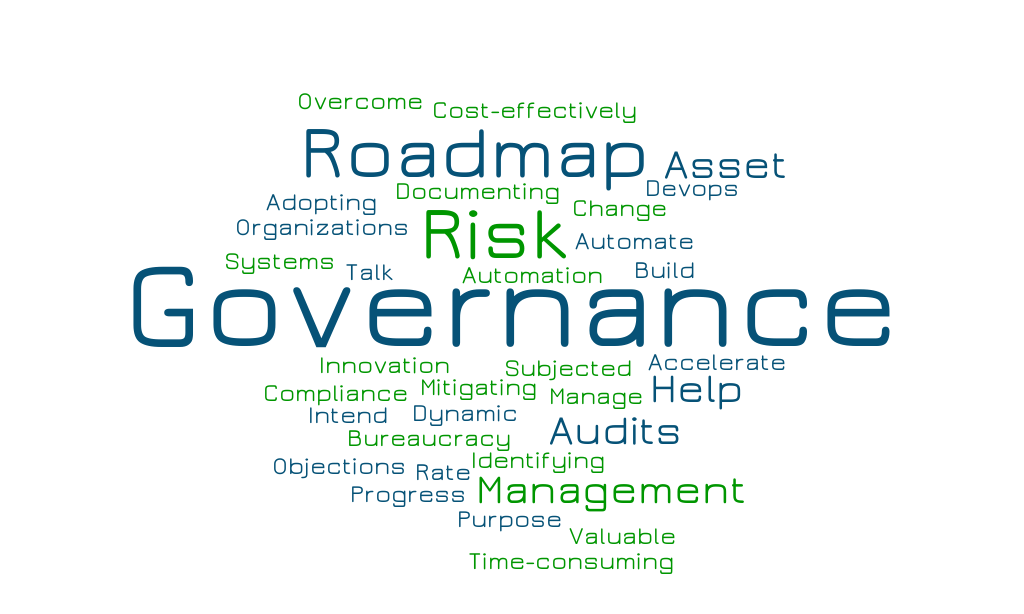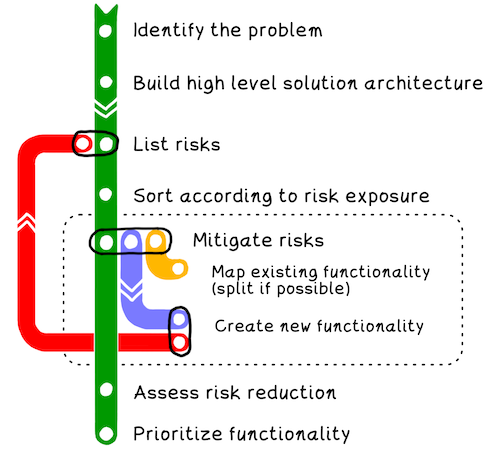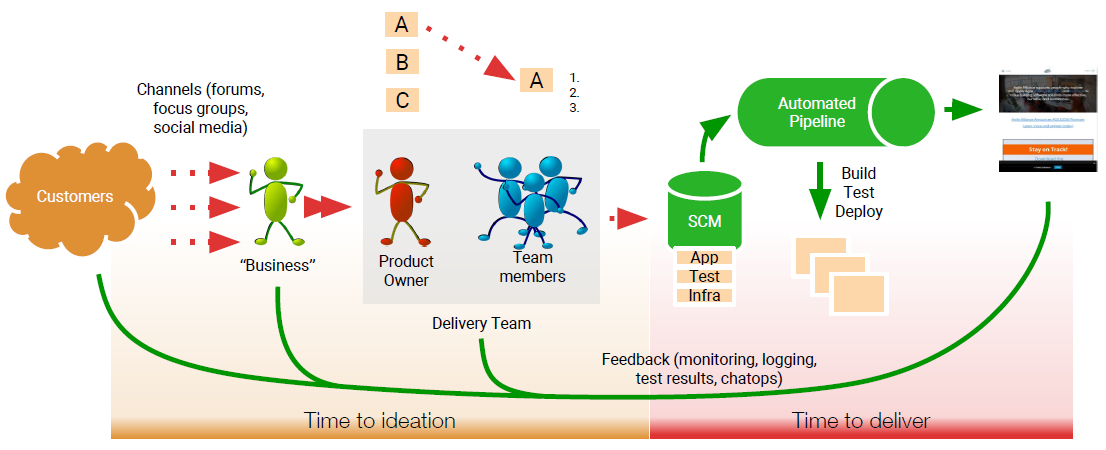Musings about Risk Management
Check out our latest post

How business agility protects your bottom line by helping you build resilient systems

Reading time: 6 min
For this fifth article in our series on how business agility can improve your bottom line, we look at how business agility aids building resilient systems. Here business agility practices help by aiding us in looking at risk management for the entire system. Not only ensuring the systems we build respond even when under stress, but helping us build safety into the system.
All articles

Automating Governance
Reading time: 6 min
Governance is something of a dirty word. It often generates a visceral reaction in people, conjuring up images of red tape, bureaucracy and time-consuming audits. These are seen as roadblocks to progress, innovation and adoption of new ways of working. This is especially true when we are looking to accelerate the rate of change or delivery speed, such as commonly occurs when adopting DevOps or Agile practices.
Below, I will discuss why we have governance, how it gets applied and some immediate approaches you can look at to help change your ways of working.
Purpose
Let’s start with the purpose of governance. Governance practices intend to manage risk. I sometimes hear that “this doesn’t apply to me. I’m in a small start-up,” but all organizations, whatever their size, need to manage risk. In one form or another, we are all subjected to governance. In larger organizations, we have added complexity to deal with in creating and managing risk. It is also true that heavily regulated industries ...

This is the time. Every crisis is an opportunity
Reading time: 3 min
We rarely find the time to invest in personal development when we are heads down in our work and lives. Often it only occurs when a situation where something outside of our control frees up time. Even then, it takes an effort to invest in our personal development. However, it is you. You who always wanted to improve but never found time or resources to do it. It is you who has this opportunity to invest in your future today!
With the economy having slowed to a point where many organizations either have to fire staff or find them not fully occupied, this is the perfect moment to invest in that improvement there never was time for previously. Perhaps this is the time for your teams to be engaged in a program x-raying your delivery process, identifying initiatives that will set you apart from the competition, and enabling you to come out of this crisis ahead.

Identifying the bottleneck
Reading time: 4 min
Often when we first engage with organizations, we find they enter the conversation with a clear idea of what their problems are. Sometimes they get it right and other times - more often in my experience - they are focusing on their own belief of where the problem lies.
For example, if the problem is the deployment process, why does the automated script take 5 minutes to run. Having successfully worked with development teams to automate deployments of their major platforms, being told deployment is the issue seems like the wrong place to focus. If it still takes weeks to get code into production, the problem lies elsewhere. Perhaps our test verification takes five weeks?
Ok. Well, if deployment of code isn’t the issue and testing is, let’s focus there I hear the cry! Well, let’s see…

Minimum Viable Bureaucracy
Reading time: 4 min
As we introduce technology into our organizations and transform the way they deliver value, bureaucracy is often cited as a common barrier. So why have it at all?
As organizations grow, the “side of desk” style of management eventually starts to fail. Communication becomes more complex as you add more people and more teams. For the company to continue delivering high-quality value, they put standards into place. Governance exists to support the continued delivery of business as usual and the satisfaction of regulatory requirements. However, too much management feels bureaucratic. What would be great would be to have just enough to support your governance needs without hindering innovation.
So how do you create your Minimum Viable Bureaucracy (MVB)?

Build powerful roadmaps
Reading time: 3 min
Many teams claim to follow agile and lean practices, yet are still challenged to deliver valuable software on a regular basis. Often, agile practices increase the transparency and visibility of the delivery process and, in turn, the intrinsic quality of the produced results. This creates the perception of an agile delivery model from within the system but rarely is the outside perception aligned with that view.

Satisfying controls at speed
Reading time: 2 min
In a world of on-demand capacity and rapid delivery of small incremental pieces of value into production, heavily regulated organizations often struggle to align the need for organizational governance with their transformation. One way to approach this is to start with highly opinionated pipelines where the controls are baked in.